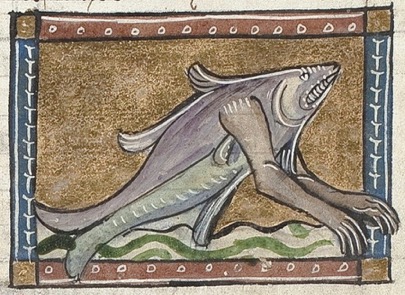Openness

Illustration taken from the illuminated manuscript Der Naturen Bloeme: The Flower of Nature produced in Utrecht or Flanders (ca. 1350)
"I wish that Computer Scientists understood what computers were for."
There's probably nothing wrong with computing that fewer computer scientists couldn't help. An insurgency favoring Openness has grumbled within that field since its inception, with few signs of its imminent success. Propriety has ruled instead, with OpenSource taking its place as just another proprietary platform as far as most users are concerned. Earlier, the Macs battled the PCs without a conclusive decision. I sided with the Macs, though by making that decision, I'd chosen to have to translate everything I created into Klingon if I expected anyone without access to my more open (to me) propriety, and that I would have to translate from Klingon anything they sent to me. Yesterday, a friend sent me a file formatted as a .odt file, pure Klingon to me, unreadable in a whole new way. It came complete with imbedded HTML in the unlikely event that I felt like reading between the lines of code to unwrap the cryptic message within. So much for Openness. ©2020 by David A. Schmaltz - all rights reserved
I figure that Openness always qualified as a Utopian aspiration, anyway, for nothing in the natural world seems all that wide open to me or to anybody. We keep our boundaries if not sacred, at least defensively. The Muse could testify as to just how tightly closed up I mostly remain. I might pour out my heart in my writing, but only for a spare hour or two at a time, and my recovery times following these disclosures seems to be increasing as I age. I can manage no more than brief spurts, and I cannot imagine living in very much greater Openness. I simply must recharge my batteries after opening up. Further, much of my inner life seems encoded in Klingon, too, and it requires painstaking translation before I can feel very confident with sharing it. Should I share it without that translation step, it would seem more like gibberish than it already does. Openness closes many connections. We each might be better recognized by the doors we maintain between our in-here and the great out-there. I'm rather proud of the quality of my doors, both the front one and the one around back.
The current administration's self-declared war against diversity and inclusion aside, our society has become much more open over my short lifespan. Once unmentionables have, for both better and worse, become part of our common language. We have become a much more tolerant people, rarely burning anyone at the stake anymore. Conservatives rail against the general degradation of norms, but as we have discovered worlds beyond our own original insular ones, we've found much to recommend them. A friend posted a question asking if anyone appreciates aliens coming here and telling us how to live, and I responded in the affirmative. We live within a society founded upon multiple propositions which seem to sum into saying that we always aspire to learn better. I suspect that I'd be sunk had I not assimilated so many better ideas from people who were not originally from here, a testament to an Openness not always immediately evident.
I remain a reluctant and therefore very noisy learner. I usually see opportunities to learn as threats to my teetering countenance. I rarely feel as if I can afford to learn better or worse, and I frequently forego opportunities to learn anything, holding on to what I seemingly barely grasp in lieu of reordering what's already a mess. I tend to catch insights anyway, endlessly reordering what I've already absorbed to make fresh space for something new. I read a review in the Sunday Book Review about a book which claims to have discovered that much of the data upon which we've based our social sciences was corrupted at conception, based upon non-representative observations and yielding widely-held misconceptions. Its author insists that we in the developed countries poorly represent humanity's us, that we're hardly normal, but mostly WEIRD as a result: White, Educated, Industrialized, Rich, and Democratic. What's wrong with that? Little, I suppose, if we lived in a closed off world instead of one increasingly aspiring to greater Openness. We could chose to live in an Us First Universe, but only by closing ourselves off from our aspiration for greater Openness; in other words, by forfeiting the possibility of fully inhabiting a universe.
I deep down despise the Openness I espouse, for it threatens me. It should threaten me. Once we learn that computers are much too valuable to entrust to Computer Scientists, we might come to benefit from an Openness where nobody has to pay tribute to any platform to perform the usual functions of daily living. One day, computing might come to be seen as a necessarily free good, one with which only Openness can produce acceptable results. Until then, various would-be monopolists will hawk their own Utopias unusable to most. My Mac seems as normal to me as I suppose your PC seems normal to you. I can't make a PC work. I've tried, but it was seemingly conceived for a culture I've never experienced. That many know no alternate conception to the computing world seems to me a grave evolutionary error. I wish that Computer Scientists understood what computers were for.


